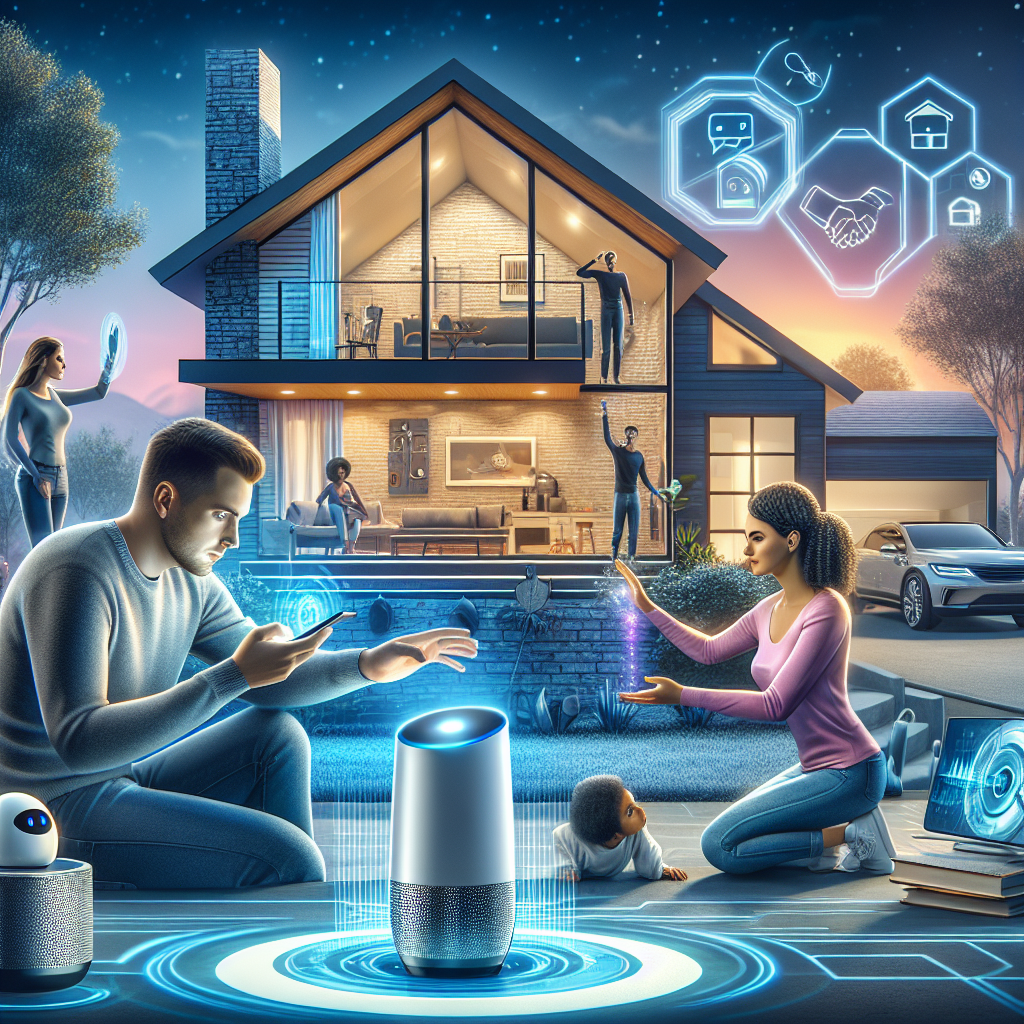In recent years, home automation technology has transitioned from being a mere fantasy featured in sci-fi movies to a tangible reality that is transforming the way we live. The integration of smart devices and artificial intelligence has made it possible for homeowners to control various aspects of their homes remotely, leading to increased convenience, security, and energy efficiency. Let’s delve deeper into the evolution of home automation technology and how it is reshaping our daily lives.
The Evolution of Home Automation Technology
Home automation technology has come a long way since its inception. What once seemed like futuristic gadgets are now common features in many households. From smart thermostats that adjust the temperature based on your preferences to voice-activated assistants that can control multiple devices with a simple command, the possibilities are endless.
One of the key drivers of the rise of home automation technology is the advancement in wireless communication and connectivity. The proliferation of high-speed internet and the development of smart devices that can communicate seamlessly with each other have paved the way for a truly interconnected home. This interconnectedness allows homeowners to monitor and control various aspects of their homes from anywhere in the world using their smartphones or tablets.
The Benefits of Home Automation
There are numerous benefits to embracing home automation technology. One of the most significant advantages is increased convenience. With smart devices like smart locks, smart lights, and smart thermostats, homeowners can automate repetitive tasks and control their homes with a single touch or voice command. This not only saves time and effort but also enhances the overall living experience.
Home automation technology also offers improved security and peace of mind. Smart security cameras, doorbell cameras, and motion sensors allow homeowners to monitor their properties and receive real-time alerts in case of any suspicious activity. Additionally, smart locks enable homeowners to remotely lock and unlock doors, providing an extra layer of security when they are away from home.
Energy efficiency is another significant benefit of home automation technology. Smart thermostats can learn your heating and cooling preferences and adjust the temperature accordingly, resulting in lower energy bills and reduced carbon footprint. Smart lighting systems can also help save energy by automatically turning off lights in unoccupied rooms and adjusting the brightness based on natural light levels.
The Future of Home Automation
The future of home automation technology looks incredibly promising. As artificial intelligence continues to advance, smart devices will become even more intuitive and adaptive to homeowners’ preferences. Integration with other emerging technologies like virtual reality and augmented reality will further enhance the user experience and expand the possibilities of what smart homes can offer.
One exciting development on the horizon is the concept of the connected home ecosystem, where all devices and appliances in a home are seamlessly connected and can communicate with each other to create a truly interconnected living environment. Imagine a home where your smart thermostat communicates with your smart lights, security cameras, and appliances to optimize energy usage, enhance security, and streamline daily tasks.
Conclusion
From science fiction to reality, home automation technology has made significant strides in revolutionizing the way we live. With the integration of smart devices, artificial intelligence, and wireless connectivity, homeowners can now enjoy increased convenience, security, and energy efficiency in their homes. As the technology continues to evolve, the possibilities for creating personalized, interconnected living spaces are endless.
FAQs
Q: How can I get started with home automation?
A: To get started with home automation, begin by identifying which aspects of your home you would like to automate, such as lighting, heating, security, or entertainment. Research different smart devices and ecosystems available in the market and choose the ones that best suit your needs and budget.
Q: Is home automation secure?
A: Home automation technology is designed with security in mind, and manufacturers continuously update their devices and software to prevent unauthorized access. It is essential to follow best practices such as using strong passwords, enabling two-factor authentication, and keeping your devices and software up to date to ensure the security of your smart home.
TIP:
When setting up your home automation system, make sure to create routines and schedules to automate repetitive tasks and optimize energy usage. This will not only simplify your daily life but also help you save money on utilities in the long run.
#SciFi #Reality #Rise #Home #Automation #Technology
